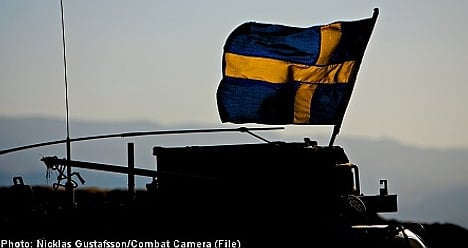“The threat is general and stretches over the whole of Afghanistan. The state of readiness has been raised and is now at a significantly higher level than it was just a few weeks ago,” lieutenant-colonel Peter Nilsson told the Göteborgs-Posten (GP) newspaper via telephone from Mazar-i-Sharif.
According to Nilsson, there have yet to be any incidents near the northern Afghan city which serves as the headquarters for about 600 Swedish soldiers deployed to take part in the NATO-led International Security Assistance Force (ISAF) mission in Afghanistan.
However, he added that there have been suicide-bomber attacks along the border to Pakistan and in Kabul.
Taliban spokesperson Zabihullah Mujahid announced the offensive on Sunday in connection with a suicide bombing that killed four people and injured twelve.
The same day, Swedish troops were called in to support an Afghan military unit outside of Mazar-i-Sharif.
The Swedish soldiers faced small-caliber arms fire and rocket launchers in what became an intense firefight, according to GP.
On Tuesday, a Taliban commander referred to Rasiullah in Jowzjan province, where members of a Swedish Provincial Reconstruction Team (PRT) are stationed, and told the Expressen newspaper that while his comrades mourn the recent death of Osama bin Laden, the al-Qaeda leader’s passing wouldn’t stop the Taliban from continuing its fight.
“It doesn’t matter if he’s dead. We’re going to continue to fight until the intruders have left Afghanistan,” he told the newspaper.
Sweden lost its fifth soldier in October 2010 since it first deployed troops in Afghanistan at the start of 2002.
In December, the Riksdag, voted to extend the country’s military mission in Afghanistan until the end of 2011.



 Please whitelist us to continue reading.
Please whitelist us to continue reading.
Member comments